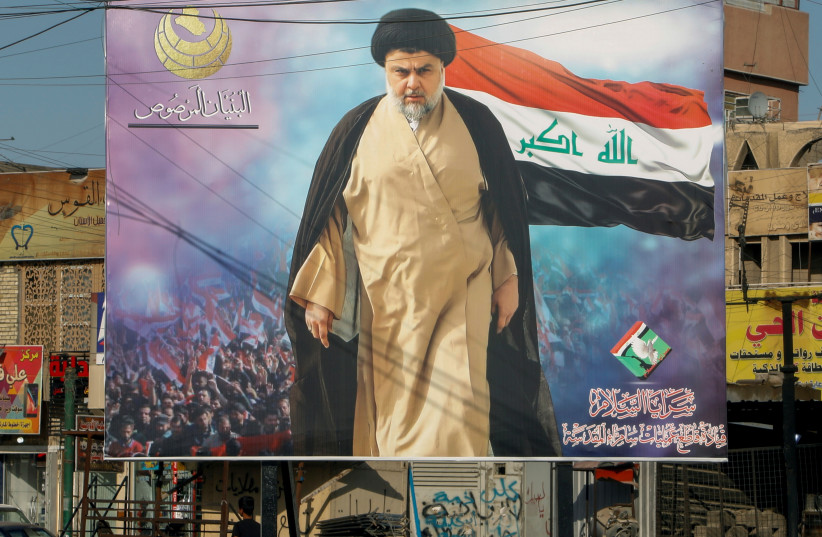The Foreign Ministry condemned a new Iraqi law that criminalizes any attempt to normalize relations with the Jewish state, at a time when Israel is pushing to expand its ties in the Arab world under the rubric of the Abraham Accords.
“This is a law that puts Iraq and the Iraqi people on the wrong side of history and disconnected from reality,” Foreign Minister spokesman Lior Haiat tweeted on Friday. “Israel condemns the decision by the Iraqi parliament to pass legislation against normalization with Israel and that imposes the death penalty on anyone who has contact with Israel.”
Haiat stressed that “the changes in the Middle East and the peace and normalization agreements between Israel and Arab states, which are bringing stability and prosperity to the peoples of the region, are the future of the Middle East,” adding that “leaders who choose a path of hate and incitement hurt their own people first of all. We call on the Iraqi people not to support this extremist position.”
The Iraqi parliament, which approved the legislation on Thursday, has been unable to convene on any other issue, including electing a new president and forming its own government, prolonging a political standoff.
Although Iraq has not recognized Israel since its establishment in 1948 and Iraqi citizens and companies cannot visit Israel, the new law goes further, specifically criminalizing any attempts to normalize relations with Israel.

The law was proposed by influential Shi’ite cleric Moqtada al-Sadr whose party, which opposes close ties with the United States and Israel, won more seats in parliament in elections last October.
“Approving the law is not only a victory for the Iraqi people but to the heroes in Palestine and Hezbollah in Lebanon.”
Hassan Salim
“Approving the law is not only a victory for the Iraqi people but to the heroes in Palestine and Hezbollah in Lebanon,” said Iraqi Shi’ite lawmaker Hassan Salim who represents the Iranian-backed militia Asaib Ahl al-Haq.
Lawmakers from Sadr’s party said they proposed the law to curb any claims by Iranian-backed rival parties that he is making coalitions with Sunnis and Kurds who may have secret ties with Israel.
US State Department spokesman Ned Price said he was “disturbed” by the move, stating that it jeopardized “freedom of expression” and promoted “an environment of antisemitism.”
“This legislation stands in stark contrast to progress Iraq’s neighbors have made by building bridges and normalizing relations with Israel, creating new opportunities for people throughout the region,” Price said. “The United States will continue to be a strong and unwavering partner in supporting Israel, including as it expands ties with its neighbors in the pursuit of greater peace and prosperity for all.”
“This legislation stands in stark contrast to progress Iraq’s neighbors have made by building bridges and normalizing relations with Israel, creating new opportunities for people throughout the region.”
Ned Price
Israel's ties with the Arab world
Under the US-brokered Abraham Accords, Israel normalized ties in 2020 with the United Arab Emirates, Bahrain, Morocco and Sudan, although relations with the latter have not advanced as much as with the other three nations. The economic boon those relations offer, plus the joint security concerns about Iran, has helped strengthen those newly formed bonds.
Israel has also full-fledged relations with Egypt and Jordan.
Saudi Arabia, a close US ally, has made it a condition of any eventual normalization with Israel that Palestinians' quest for statehood on territory captured by Israel in the 1967 Middle East war must be addressed.
On Thursday, Science and Technology Minister Orit Farkash-Hacohen signed a historic agreement in Morocco in the field of technology and science. It follows similar deals Israel signed with the UAE and Bahrain.
Israel's embassies in Bahrain and Egypt, held public events this month celebrating Israel Independence Day.
